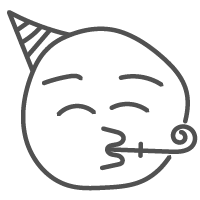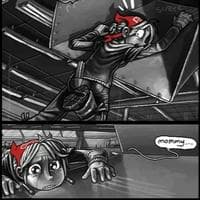Ara Haan tipo de personalidade mbti
Personalidade
"¿Qué tipo de personalidad es Ara Haan? Ara Haan es un tipo de personalidad INFP en mbti, 6w7 - - en enneagram, RCUAI en Big 5, EII en Socionics."
The following analysis comes from Gemini pro, based on Jung's psychological types: PART (1/2) Attitude Type (Introversion vs. Extraversion): Internal Focus: The narrative's core is Ara's internal exploration, struggles, and the establishment of her beliefs ("what kind of justice and conviction should I pursue," "I will punish evil with this power and walk my own path," "constantly reflect and examine myself," "What is justice," "Am I walking towards justice," "This is the justice in my heart"). Her actions and judgments are ultimately based on subjective factors. External World as Trigger: While she experiences the vast world, encounters problems, interacts with others (Gaia, Laby, Eun, the rescued person), and pursues demons, these external interactions primarily serve as catalysts for internal reflection and the examination of her inner values. Eun's words are a "trigger for thought"; the rescued person's back inspires internal "hope." This aligns with the description of Introversion: "oriented towards subjective factors," and "inserts a subjective view between the observation of the object and his own action." The libido flows primarily inward towards her convictions and value system. Conclusion: The attitude type leans towards Introversion (I). Dominant Function (T/F vs. S/N): Rational Judgment Dominates: The entire self-description revolves around value judgments and moral questioning concerning concepts like "justice," "conviction," "good and evil," "compassion," "sacrifice," "family," "trust," and "betrayal." Her actions (punishing evil) and reflections are structured around a core value framework. This strongly points towards a Rational function (T or F) being dominant. Feeling (F) vs. Thinking (T): Value-Centric Judgment: Her definition of "justice" (punish evil, be compassionate), the motivation for her actions (saving family, upholding justice), her inner turmoil (right to judge evil, always being just), and her understanding of others are all based on deep personal values, morality, and emotional connections, rather than objective logic or factual analysis. Empathy and Relationships: She understands Laby's confusion and pain, empathizes with Winston's trust, feels a deep connection to Eun ("Eun is a very important existence"), and ultimately chooses honesty based on the value she places on her relationship with the El Search Team ("I don't want to part with everyone"). This highlights the importance of feeling in interpersonal understanding and decision-making. Aligns with Introverted Feeling (Fi) Description: The provided material defines Feeling (Fühlen) as "a process that bestows a particular value... in the sense of acceptance or rejection," arranging consciousness by value. Introverted Feeling (Fi) is described as "determined primarily by subjective factors," where the "relationship with the object is secondary," striving for "inner intensity," and seeking an inner image (corresponding to her search for ideal "justice"). Her ultimate standard being "the justice in my heart" is characteristic of Fi's reliance on internal values. While she thinks and reflects, the content of that thought serves the moral evaluation of her beliefs and actions. Conclusion: The dominant function tends to be Introverted Feeling (Fi). Inferior Function: According to the provided materials, the function opposite to the dominant Fi is Thinking (T), manifesting as inferior Extraverted Thinking (Te). Inferior functions are described as "archaic," "primitive," "infantile," "negative," and often opposing the conscious attitude. Inferior Te might manifest as difficulty relying on or establishing objective, universal external rules or logical systems, struggling with efficiency/organization under pressure, or resorting to simplistic, black-and-white judgments. Manifestation in Text: Ara's repeated questioning ("Can I judge evil?", "Am I always 'justice'?") demonstrates her difficulty in confidently relying on an external, objective standard of judgment (Te's domain). She must constantly return inward (Fi) for validation. Her occasional self-doubt ("I myself don't have much confidence") could relate to the uncertainty in action stemming from inferior Te. Her confusion about "why evil spreads" reflects difficulty in comprehending and dealing with complex external systems (Te's domain). Conclusion: The inferior function tends to be Extraverted Thinking (Te).
























